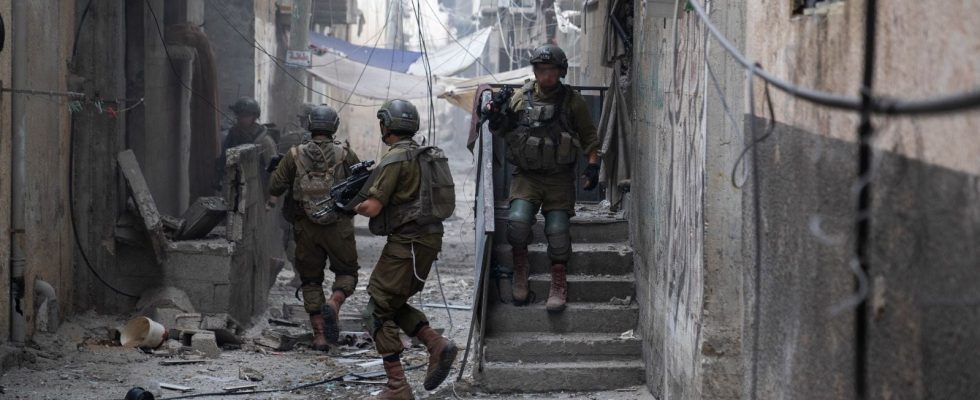How can we imagine the “day after”, when the war rages in Gazathat bombs are raining on the south of this narrow strip of land and that the hope of new releases of hostages fades with the end of the truce? There will, however, be a tomorrow, even if neither party is yet able to envisage it. Of course, it is difficult to imagine what will happen in the coming weeks, as the fog of war obscures the horizon. But the exercise is no less useful for planning ahead. Here are five scenarios that seem likely to us, in the more or less long term. They suggest the worst, but also explore hopeful perspectives. From international governance to the two-state solution, here is the range of possibilities. Second scenario in our special report: the occupation of Gaza by Israel.
EPISODE 1. Israel – Hamas: the scenario of a war that drags on
After militarily defeating Hamas, Israel occupies the Palestinian enclave. “It would not be unlikely that Israel would find itself stuck in Gaza after defeating Hamas,” says Ghaith al-Omari, senior fellow at the Washington Institute for Near East Policy. “There would follow a long period during which Israel would be in charge to control the situation on a daily basis.”
Eighteen years after its withdrawal from the enclave in 2005, how far could this Israeli control go? “An annexation of Gaza seems hardly credible to me,” said Jean-Loup Samaan, associate researcher at the French Institute of International Relations. On the other hand, a de facto occupation, like that of South Lebanon after the Israeli operation of 1982, is more so.”
Extreme diplomatic pressure
This possibility already finds defenders within the Israeli population. According to a recent survey of the Jewish People Policy Institute, a third of Israeli Jews would favor control of Gaza at the end of the war, and 24% would support, moreover, a reestablishment of the settlements in Gush Katif, in the south of the enclave, where they existed before 2005.
Until now, however, the Israeli Prime Minister has remained evasive on the follow-up he intends to give to his military operation. “Gaza must be demilitarized. And there is only one force that can ensure this demilitarization: the Israeli army,” he said on December 5, without specifying the duration of such an occupation. Three days earlier, the Jewish state had also mentioned the establishment of a buffer zone on the northern border, to protect itself from new attacks once the war is over.
An occupation of the enclave would in any case pose numerous security challenges. “One of the reasons why Israel withdrew from Gaza in 2005 was the numerous attacks against Israeli soldiers and settlers,” recalls Hugh Lovatt, Middle East specialist at the European Council on Foreign Relations. But, today Today, the security situation is much more difficult than at the time.” At the same time, there would be extreme diplomatic pressure on the Jewish state, particularly from its allies.
“A lasting occupation of Gaza would be dangerous for the Israelis,” confirms an Elysee source. And could even arouse the ire of Washington. “There must be no forced displacement of Palestinians from Gaza, no reoccupation, no siege or blockade, no reduction of territory,” Joe Biden reaffirmed in a Tribune on November 18.
.
